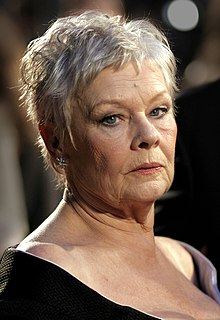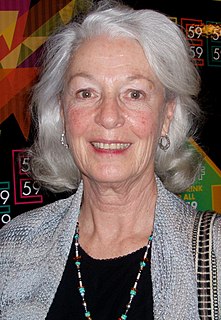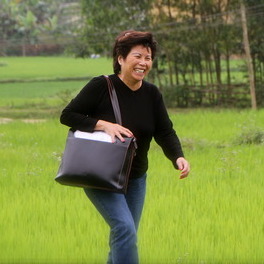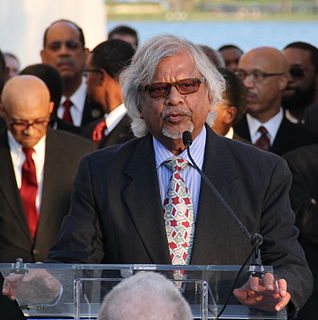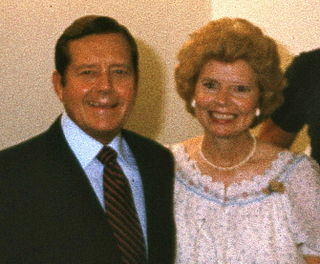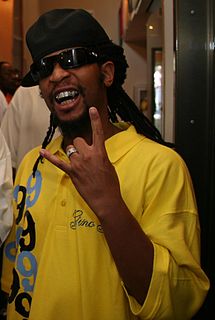A Quote by Ray Bradbury
Related Quotes
What I'm trying to do is to tell young people that I teach them how to breathe before I teach the haiku. That one breath, that one breath, because the haiku keeps you alive. It keeps you going. If you learn how to breath the haiku, you learn how to breathe. If you learn how to breathe, you're much healthier.
The arts are not a frill. The arts are a response to our individuality and our nature, and help to shape our identity. What is there that can transcend deep difference and stubborn divisions? The arts. They have a wonderful universality. Art has the potential to unify. It can speak in many languages without a translator. The arts do not discriminate. The arts lift us up.
I've been making a list of the things they don't teach you at school. They don't teach you how to love somebody. They don't teach you how to be famous. They don't teach you how to be rich or how to be poor. They don't teach you how to walk away from someone you don't love any longer. They don't teach you how to know what's going on in someone else's mind. They don't teach you what to say to someone who's dying. They don't teach you anything worth knowing.
When we teach a child to sing or play the flute, we teach her how to listen. When we teach her to draw, we teach her to see. When we teach a child to dance, we teach him about his body and about space, and when he acts on a stage, he learns about character and motivation. When we teach a child design, we reveal the geometry of the world. When we teach children about the folk and traditional arts and the great masterpieces of the world, we teach them to celebrate their roots and find their own place in history.
Everyone knows the phenomenon of trying to hold your breath underwater - how at first it's alright and you can handle it, and then as it gets closer and closer to the time when you must breathe, how urgent the need becomes, the lust and the hunger to breathe. And then the panic sets in when you begin to think that you won't be able to breathe - and finally, when you take in air and the anxiety subsides...that's what it's like to be a vampire and need blood.
For you see, the face of destiny or luck or god that gives us war also gives us other kinds of pain: the loss of health and youth; the loss of loved ones or of love; the fear that we will end our days alone. Some people suffer in peace the way others suffer in war. The special gift of that suffering, I have learned, is how to be strong while we are weak, how to be brave when we are afraid, how to be wise in the midst of confusion, and how to let go of that which we can no longer hold. In this way, anger can teach us forgiveness, hate can teach us love, and war can teach us peace.
So many people around the world have used nonviolence as a way to resolve a conflict that they faced in their lives. And they continue to use it everywhere all over the world there. And I think, in a way, nonviolence is our nature. Violence is not really our nature. If violence was our nature, we wouldn't need military academies and martial arts institutes to teach us how to kill and destroy people. We ought to have been born with those instincts. But the fact that we have to learn the art of killing means that it's a learned experience. And we can always unlearn it.
What we men share is the experience of having been raised by women in a culture that stopped our fathers from being close enough to teach us how to be men, in a world in which men were discouraged from talking about our masculinity and questioning its roots and its mystique, in a world that glorified masculinity and gave us impossibly unachievable myths of masculine heroics, but no domestic models to teach us how to do it.
God is faithful and just to forgive us our sins and to cleanse us from all unrighteousness. So to confess is to breathe in and to ask God to forgive me of my sins. And as we breathe out we breathe out the impure air and breathe in the pure air. I would say the pure air is knowing that God has forgiven us of our sins.
Do you realize that there is nothing in our genes that tells us when to die? There are genetic codes that tell us how to grow, how to breathe, and how to sleep, but NOTHING that tells us to die. So why do we? Because we literally rust and decay our bodies from the inside out with poor food and lifestyle choices.



